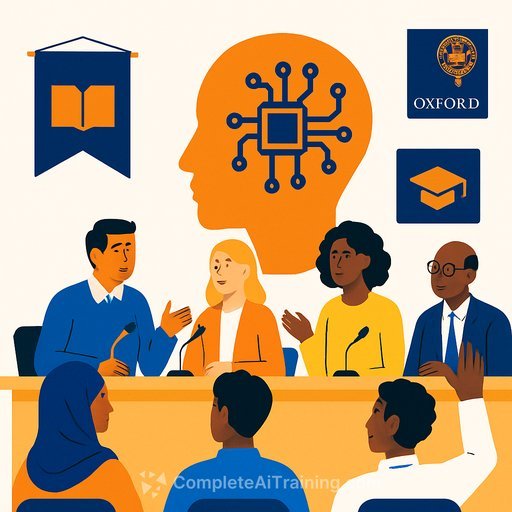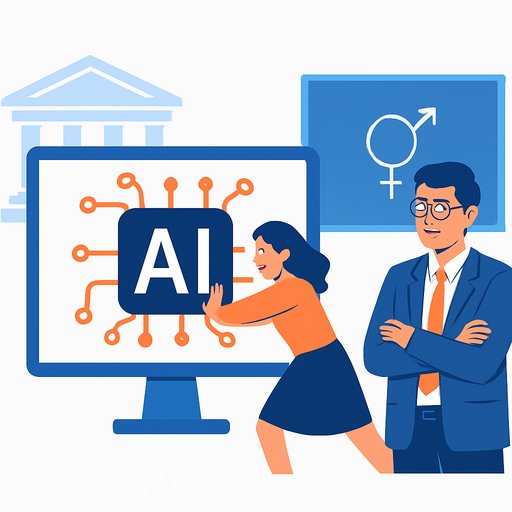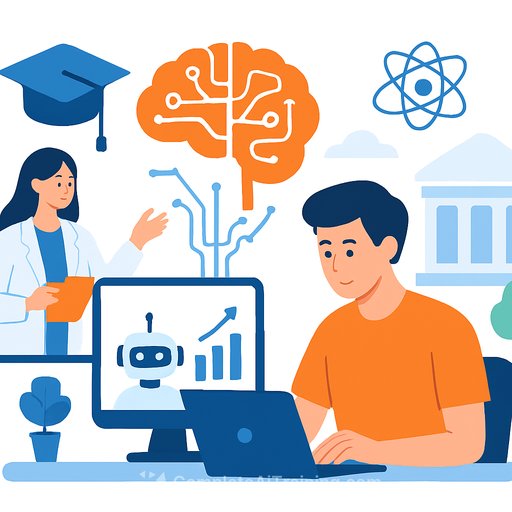Pioneering conversations on AI in education at Oxford
Last week, the inaugural AI in Education at Oxford University (AIEOU) conference brought over 250 experts together to move the field forward with equity and responsibility at the core. Researchers, educators, policymakers, and industry leaders from Australia, India, Canada, Tanzania, the Middle East, and beyond exchanged ideas and built practical next steps.
Across two days and 100+ sessions, the event focused on what works in real classrooms and systems. The tone was clear: AI should serve learners and educators, not the other way around.
Exploring the role of AI in education
OUP has been part of the AIEOU Hub since 2024, which has grown to 2,000+ collaborators across 100+ countries. Hosted by the University of Oxford's Department of Education, the conference prioritized interdisciplinary research and open dialogue on AI's impact across early years, K-12, and higher education. Learn more about Oxford's Department of Education.
Sessions addressed ethical frameworks, human agency, inclusion, teacher workload, data privacy, and evidence-based implementation. The goal: lift outcomes without increasing burden or bias.
"Oxford University Press is proud to support the inaugural AIEOU conference, an important forum for advancing interdisciplinary dialogue on the role of AI in education. By convening perspectives from policy, industry, and academic research across disciplines and geographies, AIEOU is helping to shape a more equitable and informed future for learners and scholars worldwide." - Sarah Ultsch, Product Strategy Director, English Language Teaching
Highlights from the programme
Dr Sara Ratner, Principal Investigator of the AIEOU Hub, opened the event by underscoring the value of cross-border collaboration: "At a time when AI is challenging all that we do and know about teaching and learning, I am proud that Oxford is creating the space for conversations such as these to take place."
Keynotes from Professor Liz Wonnacott and Professor Rebecca Williams covered AI and language learning, and the legal regulation of AI in education. Professor Anne Trefethen, Pro Vice-Chancellor (Digital), called for AI use that is positive, equitable, and grounded in lived experience.
Alexandra Tomescu shared a quote that resonated throughout the conference: "AI is not one thing. Education is not one thing." Her takeaway: human learning is complex, so AI integration should be iterative, flexible, and informed by evidence.
OUP's ELT Product team unveiled the ELT-Bench Project-a global benchmark to evaluate the pedagogical effectiveness of AI in language learning. Built by experts in pedagogy, data science, and AI architecture, it offers a clear, classroom-relevant evaluation framework.
Designing AI for learners first
In a panel discussion, Isaac Pattis, AI Incubation Manager at OUP, noted: "AIEOU created space for conversations driven by educational needs. What stood out wasn't just the content, it was the emergence of a community focused on designing AI to support meaningful learning."
- Ground design in pedagogy
- Regulate to protect learners
- Implement for effectiveness (not novelty)
- Measure impact through equity
The consensus was clear: let learner needs drive decisions. Technology should follow curriculum goals, teacher workflow, and clear evidence of impact.
What this means for educators
- Run pilots with clear learning objectives and comparison groups. Share results openly.
- Co-design with teachers, students, and families. Test with diverse learner profiles.
- Audit tools for data privacy, bias, accessibility, and workload impact before scaling.
- Adopt plain-language policies and student-facing explanations of AI use.
For policy and leadership teams, UNESCO's guidance offers a practical reference point for safe and effective AI use in education. Read UNESCO's guidance on generative AI in education.
If you are building staff capability, explore curated AI learning paths and certifications for education roles: Courses by job and Popular certifications.
Looking ahead
The AIEOU Hub will continue expanding research and partnerships to turn insight into practice. OUP remains committed to initiatives that center equity, evidence, and learner outcomes-so AI supports teaching where it matters most: in the classroom.
Your membership also unlocks:






